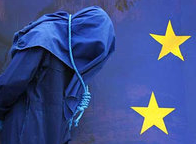EU approves new sanctions against Russia, but not sectoral ones

In Brussels, members of the Committee of Permanent Representatives of 28 countries of the European Union gathered for a meeting to discuss new sanctions against the Russian Federation. The European politicians approved new members of the sanctions list - individuals and legal entities from Russia and Ukraine. However, the EU does not intend to impose new sanctions against entire sectors of the Russian economy.
Permanent representatives listened to joint proposals from the European Commission and the EU External Action Service to expand the "black list". Currently, the new sanctions were introduced against 15 individuals and 18 companies, ITAR-TASS reports with reference to a diplomatic source in Brussels.
No named have been specified yet. However, Bloomberg, citing its sources, reported that the sanctions affected the head of the Russian FSB Alexander Bortnikov. According to the agency, there are no large corporations among 18 companies that fall under new restrictions.
In addition, the agency said, the list may include the President of Chechnya, Ramzan Kadyrov, the head of the Foreign Intelligence Service of Russia Mikhail Fradkov and Security Council Secretary Nikolai Patrushev.
With regard to economic sanctions that affect whole sectors of the Russian economy, the European Union does not hurry to impose them. According to Reuters, these measures will not be taken at least before next week. The European Commission tabled several proposals to limit Russia's access to the EU funding, as well as energy and industrial technologies. "This discussion will continue next week," spokesman for the European Commission Jonathan Todd said.
The list of such measures proposed by the European Commission and foreign ministers of the EU include an arms embargo and a ban on the export of dual-use goods.
With regard to technological limitations, Vice President of the European Commission Günther Oettinger, responsible for energy, previously stated that they could affect exports of shelf development technologies to Russia, particularly the Arctic shelf.
As for financial sanctions, it transpired that the EU considers a ban to buy bonds and shares of largest Russian banks with state participation. This measure implies a ban for European officials to invest in state-owned bonds of Russian financial institutions, as well as shares and similar financial instruments with maturity period of more than 90 days.
Noteworthy, the United States has no plans yet to impose additional sanctions on Russia. This was announced by White House spokesman Eric Schultz, who accompanies President Barack Obama on a trip to California. Answering journalists' questions about the new sanctions, he said: "No. I repeat: we constantly monitor the situation and evaluate it, so I can not tell you anything today."
On July 17, it became known that the U.S. and EU imposed additional sanctions on Russia. The list included several Russian officials and representatives of the self-proclaimed People's Republic of Donetsk. The sanctions mainly affected companies, in particular, industrial and petroleum ones. The list of sanctioned companies and organizations was expanded with Vnesheconombank, Gazprombank, Rosneft, Basalt, Feodosia Oil Company, Concern of Electronic Technologies KRET, company Constellation, NPO Engineering, Concern Almaz-Antey, Kalashnikov, Instrument Design Bureau, Uralvagonzavod, JSC Novatek, Donetsk and Luhansk People's Republics.
Pravda.Ru
Subscribe to Pravda.Ru Telegram channel, Facebook, RSS!


